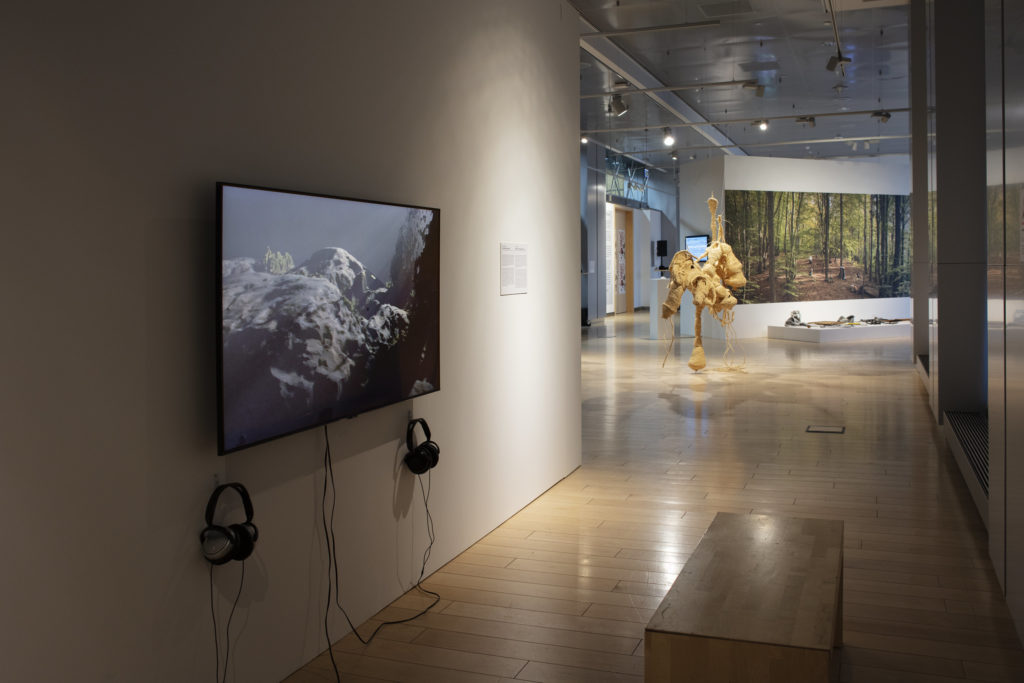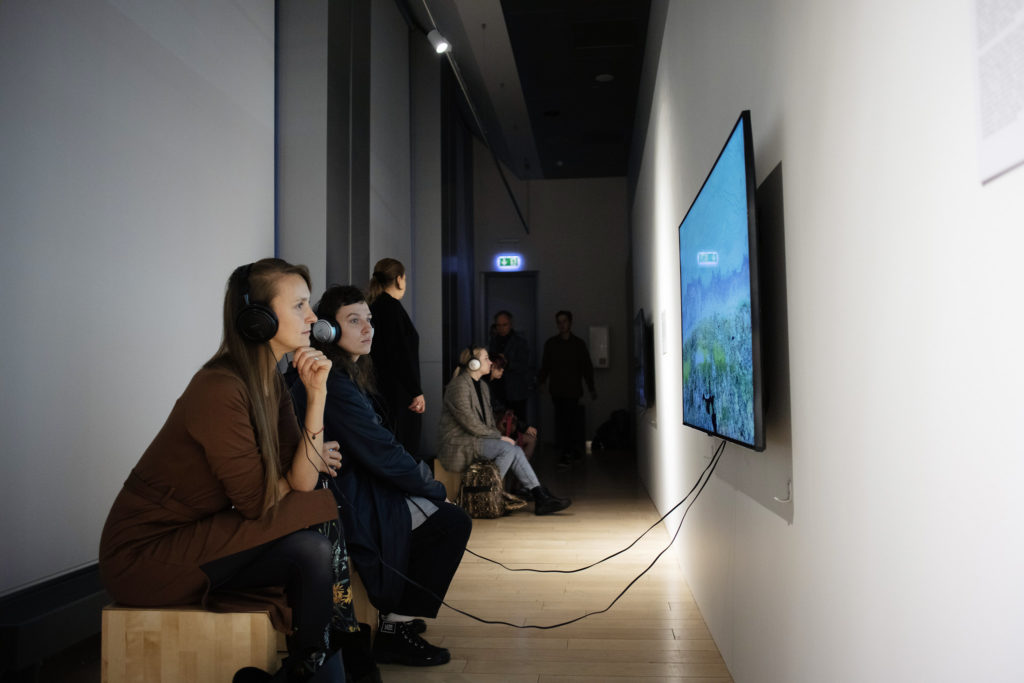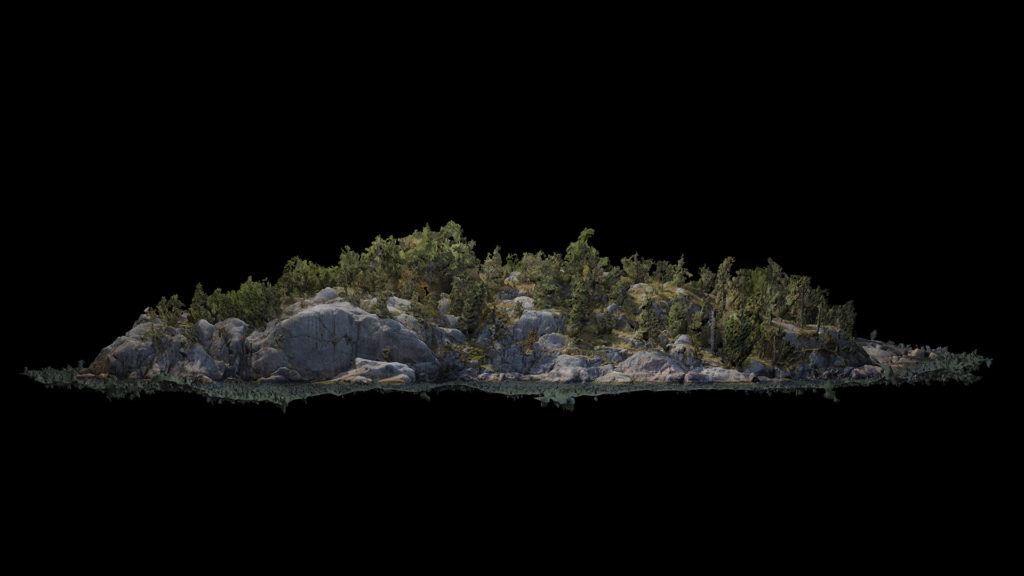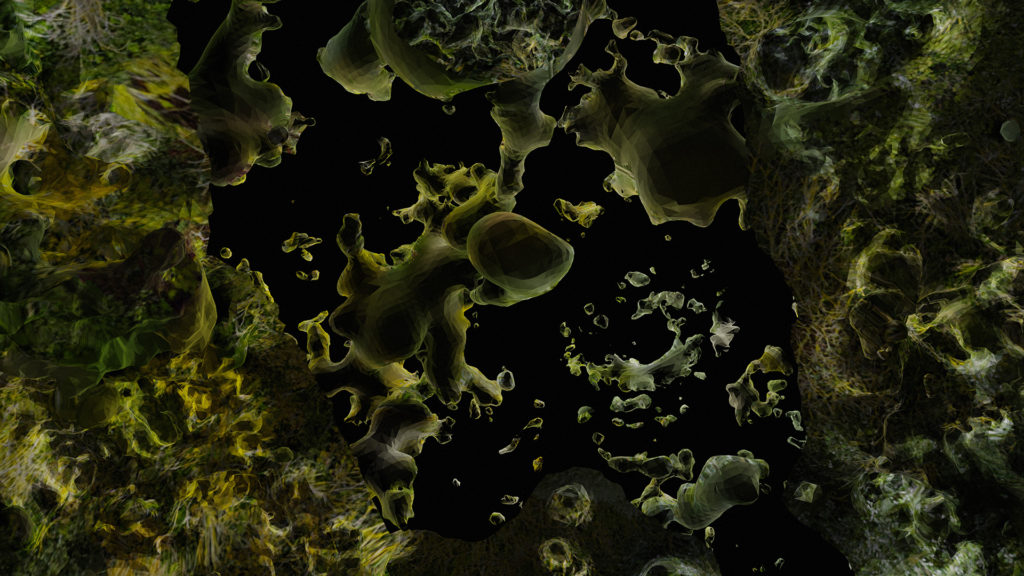Models for Environmental Literacy
2020, 4K video, computer-generated text, sound. Duration 36:40
In the face of climate change, large-scale computer-controlled systems are being deployed to understand terrestrial systems. Artificial intelligence is used on a planetary scale to detect, analyze and manage landscapes. In the West, there is a great belief in ‘intelligent’ technology as a lifesaver. However, practice shows that the dominant AI systems lack the fundamental insights to act in an inclusive manner towards the complexity of ecological, social, and environmental issues, while the imaginative and artistic possibilities for the creation of non-human perspectives are often overlooked.
With the long-term research project and experimental films ‘Models for Environmental Literacy’, the artist Tivon Rice explores in a speculative manner how A.I.s could have alternative perceptions of an environment. Three distinct A.I.s were trained for the screenplay: the SCIENTIST, the PHILOSOPHER, and the AUTHOR. The A.I.s each have their own personalities and are trained in literary work – from science fiction and eco-philosophy, to current intergovernmental reports on climate change. Rice brings them together for a series of conversations while they inhabit scenes from scanned natural environments. These virtual landscapes have been captured on several field trips that Rice undertook with FIBER(Amsterdam) and BioArt Society (Helsinki) over the past two years. ‘Models For Environmental Literacy’ invites the viewer to rethink the nature and application of artificial intelligence in the context of the environment.
Tivon Rice is an artist and educator working across visual culture and technology. Based in Den Haag (NL) and Seattle (US), his work critically explores representation and communication in the context of digital culture and asks: how do we see, inhabit, feel, and talk about these new forms of exchange? How do we approach creativity within the digital? What are the poetics, narratives, and visual languages inherent in new information technologies? And what are the social and environmental impacts of these systems?
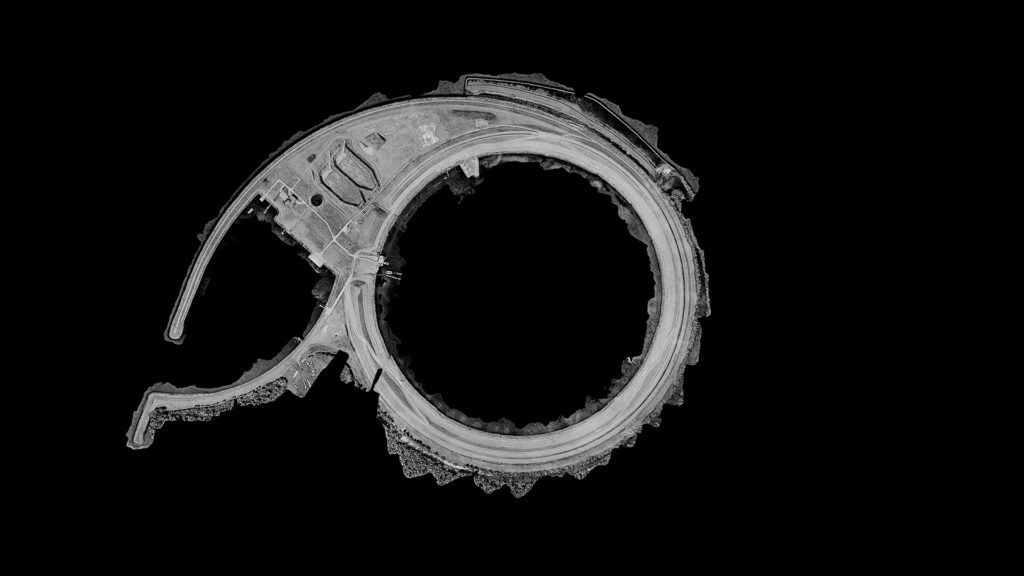
Taivons Raiss
Vides lasītprasmes modeļi
2020, 4K video, datora ģenerēts teksts, skaņa, 36:40 min
Klimata pārmaiņu izaicinājuma priekšā, liela mēroga datoru kontrolētas sistēmas tiek pielietotas, lai izprastu zemes sistēmas. Mākslīgais intelekts tiek izmantots visas planētas mērogā, lai noteiktu, analizētu un pārvaldītu vidi. Tomēr, pieredze rāda, ka šīm dominējošajām MI sistēmām trūkst fundamentālas izpratnes, lai tās spētu iekļaujoši darboties ar sarežģītajiem ekoloģiskajiem, sociālajiem un vides izaicinājumieim, kamēr radošās un mākslinieciskās iespējas ne-tikai-cilvēku perspektīvu radīšanā bieži paliek neievērotas.
Ilgtermiņa izpētes projektā un eksperimentālo filmu sērijā Vides lasītprasmes veidi, mākslinieks Taivons Riass atklāj spekulatīvo veidu, kā MI varētu būt alternatīvi veidi, kā tas uztver vidi. Trīs atšķirīgi mākslīgā intelekta modeļi tika “trenēti” noteiktām scenārija lomām: ZINĀTNIEKS, FILOZOFS un AUTORS. Katram MI modelim piemīt dažādas personības, un tie ir izglītoti literatūras jomā – no zinātniskās fantastikas un eko-filozofijas darbiem līdz mūsdienu starpvaldību atskaitēm par klimata pārmaiņām. Šie modeļi tiek sapulcināti kopā sarunām virtuālās ainās no ieskenētām dabas ainavām. Pēdējo divu gadu laikā mākslinieks ir iemūžinājis šīs ainavas no viņa braucieniem, ko viņš veica ar FIBER (Amsterdama) un BioArt Society (Helsinki). Vides lasītprasmes modeļi liek pārdomāt dabu un mākslīgā intelekta pielietojumu vides kontekstā.
